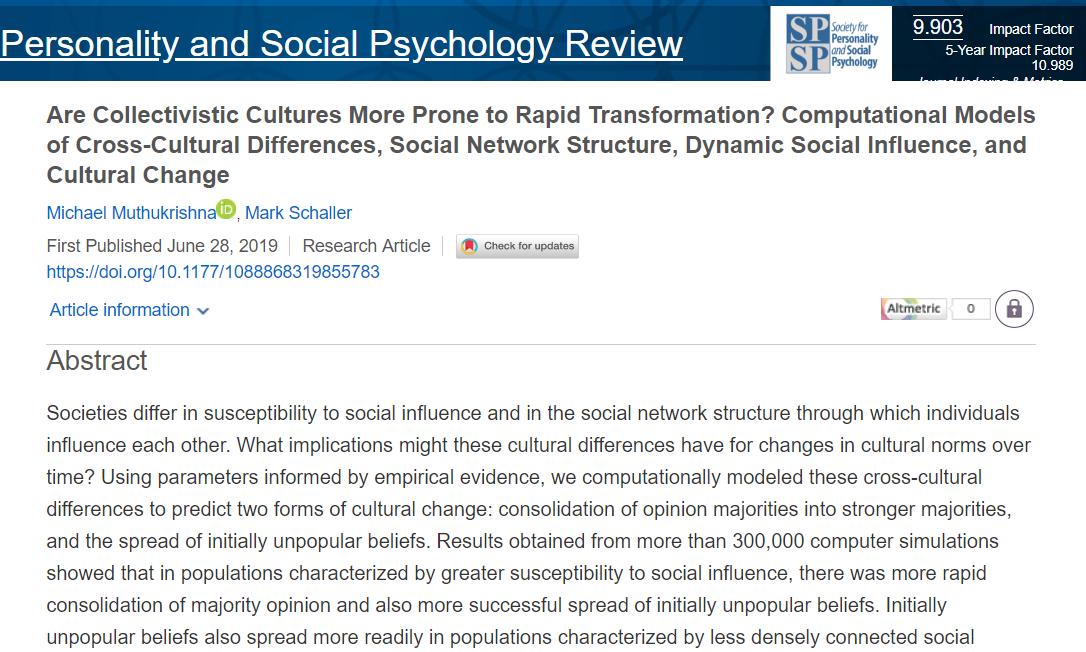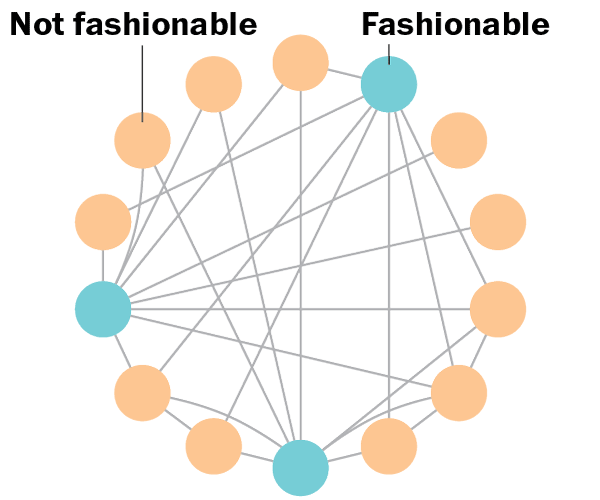Summary from Twitter thread:
New paper in Personality and Social Psychology Review (PSPR): Societies more susceptible to social learning (e.g. China) more culturally stable, but also more susceptible to rapid transformation. Punctuated cultural equilibrium. Models differences in cross-cultural social networks and influence. Why? 1/3
https://journals.sagepub.com/doi/abs/10.1177/1088868319855783?journalCode=psra

Consider Majority illusion (Blue Fashionable will be perceived as majority view due to social network structure).
Some societies more likely to conform. Under most conditions, conforming to the majority leads to stability, but… 2/3

A well connected ideologue taking advantage of that conformity leads to rapid social change.
In a less well connected society with fewer conformists, too many leaders, not enough followers making it harder for one to dominate and kickstart a country-wide revolution. 3/3








